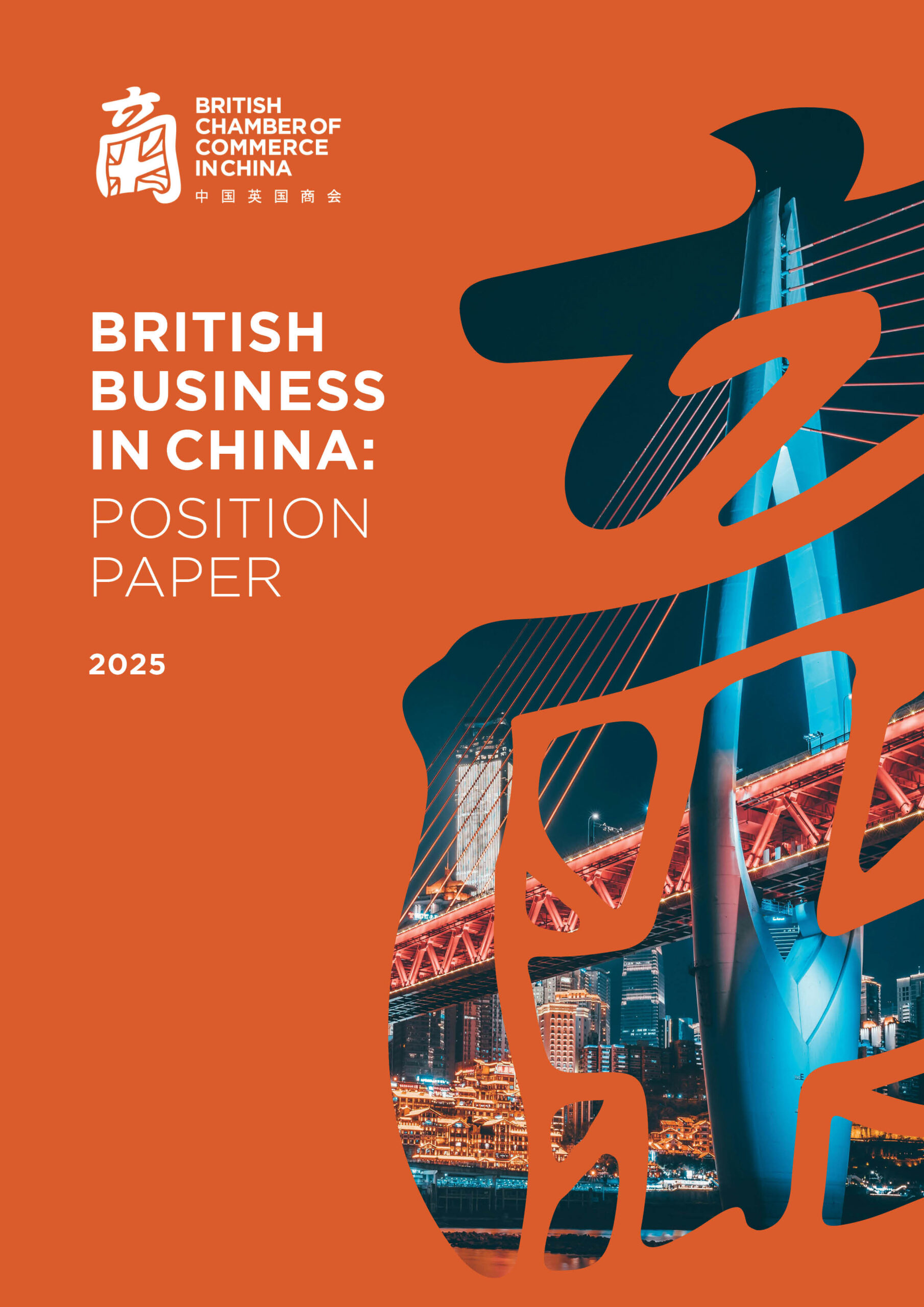Are you a parent with school age children looking to provide your child with a…
Predictability and implementation are the key tests of market openness, say British business in China
British Chamber releases seventh annual Position Paper, outlining 50 outstanding challenges to market access and regulatory clarity across key sectors
The British business community has today urged China’s government to close the gap between official announcements and on-the-ground implementation on key market access issues for British businesses.
The calls for renewed work on longstanding market issues form part of the British Business in China: Position Paper 2025, the British Chamber of Commerce in China’s annual advocacy report. The seventh edition of the paper recommends changes on 50 key market access issues in sectors such as financial services, food and beverage, education, and more; ten of these long-standing issues have featured in every Position Paper since 2019.
“There is now a significant opportunity for China to take the lead in championing transparency, predictability and reciprocal market access,” said Julian Fisher, Chair of the British Chamber of Commerce in China. Improving market access by removing additional tariffs on British business, setting a level playing field for foreign business, and fully realising commitments made on market access would “send a powerful signal to international investors and to the wider world about China’s leadership in global trade,” he added.
The British Chamber has welcomed some movements on key issues such as easing packaging requirements for whisky, and improving import procedures for classic cars – key issues raised by the Position Paper 2024, which have seen tangible movement in policy over the last year.
Chamber members also welcome the “renewed spirit of dialogue” and “pragmatic collaboration” between the UK and China, said Fisher, noting initiatives such as the UK-China Economic and Financial Dialogue which have begun to effect change on the trading relationship between the two countries.
Despite these positive movements, major market access challenges remain. In order to convert positive official sentiment into greater predictability and certainty for British businesses, the Chamber calls for:
- Predictable, transparent implementation of policy to enable long-term planning. In an increasingly complex global environment, stability in regulation is essential to enable continued investment and engagement from international firms.
- Resolution of long-standing, sector-specific access challenges. From the recognition of professional qualifications to licensing regimes and cross-border data rules, meaningful reform would unlock significant benefits for both economies.
- More bilateral dialogue with continuing tangible outcomes. Businesses commend recent high-level engagement, and call for future dialogues – including the proposed restart of the UK-China Joint Economic and Trade Committee – to deliver practical results in key areas of alignment.
“British businesses want to see China succeed,” said Fisher. “We want to play a role in that success. With clear rules, constructive engagement and tangible action, the next phase of UK-China trade awaits – defined by certainty, collaboration and long-term growth.”





